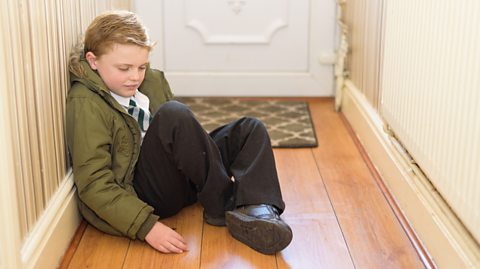If your child has been referred to their local Child and Adolescent Mental Health Services (CAMHS), you may be waiting several weeks or months before they have their appointment date.
We spoke to school counsellor Catherine Mantack to get some advice on what you can do to support your child whilst you’re trying to access help for them.
Catherine Mantack (school counsellor): Here are 5 things you can do to support your child while you try to access help for them…
Create a supportive environmentTry to make sure your child feels that they’re in a supportive and nurturing environment. To create this, I would advise encouraging your child to share how they’re feeling whilst you listen, avoid giving advice, and let them know that you want to understand what they’re going through.
Stick to a healthy routineHelp your child maintain a consistent routine that involves a good sleeping pattern, physical activity, healthy meals and participation in hobbies. Routine can really help provide a sense of stability.
Talk to professionalsKeep key professionals, such as your GP, school SENCO, and pastoral team, updated on your child's progress and any concerns you may have. Open communication with these key professionals ensures a collaborative approach to supporting your child's well-being.
Look into local servicesThere are lots of organisations that can provide information and services for children and young people to help them manage their thoughts and emotions.You can visit BBC Action Line, which lists many mental health charities that can offer advice.
Take care of yourselfPlease try to take care of your own mental health. Make sure you have a support system in place for yourself and seek professional help if required.
Here are five things you can do to support your child whilst they wait for CAMHS:
1. Create a supportive environment
Try and make sure your child feels they’re in a supportive and nurturing environment. Encourage your child to share how they’re feeling whilst you listen. Avoid giving advice, and let them know that you want to understand what they’re going through.
Roman Kemp: The Fight for Young Lives - mental health tips for parents
2. Stick to a healthy routine
Help your child maintain a consistent routine that involves a good sleeping pattern, physical activity, healthy meals and participation in hobbies. Routine can help provide a sense of stability.
3. Talk to professionals
Keep key professionals such as your GP, Special Educational Needs Coordinator (SENCO) and school pastoral team updated on your child’s progress, and any concerns you may have. Open communication with these key professionals ensures a collaborative approach to supporting your child’s wellbeing.
4. Look into local services
There are lots of organisations that provide information and services for children and young people to help them manage their thoughts and emotions. Search online or ask your council or GP for local services or visit BBC Action Line for details of nationwide mental health charities that can offer advice.
5. Take care of yourself
It’s also important to try and take care of your own mental health. Make sure you have a support system in place for yourself and seek professional help if you need it.
Further resources:
Read our Parents’ Toolkit Mental Health First Aid Kit if you’re concerned about what to do if your child’s mental health worsens.
Try these seven simple relaxation and mindfulness activities together, and help your child learn to calm down when they feel stressed or anxious.
Check out our Parents’ Toolkit wellbeing section for more tips and advice.

More from BBC Bitesize Parents' Toolkit…
Parents' Toolkit
Fun activities, real-life stories, wellbeing support and loads of helpful advice - we're here for you and your child.

What does CAMHS stand for and what do CAMHS do?
Parents' Toolkit guide to Child and Adolescent Mental Health Services covering what support CAMHS can provide, how to get a CAMHS referral and how long a CAMHS referral takes.

School anxiety and refusal: How to help your child get through tough times
Tips to help parents understand emotionally-based school avoidance and offer support to their child.

What is a school SENCO?
Parents' Toolkit guide to the role of a Special Educational Needs Coordinator, what questions to ask a SENCO, and how can a SENCo help my child?

Mental health first aid kit for parents: Who to ask and what to do
Worried that your child needs help with their mental health? Here's how you can access professional help and support your child while you wait.

What is an EHC plan and how do I get one for my child?
Parents' Toolkit guide to a Education, Health and Care plan, how to get an EHC plan for your child and what to do if your child can’t get an EHC plan.
